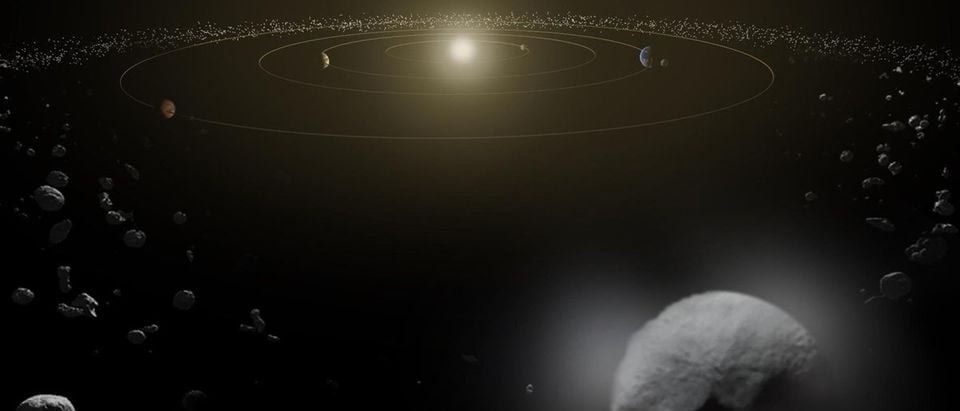NASA announced Friday that it has formalized a Planetary Defense Coordination Office to defend Earth from asteroids that could potentially end humanity.
The new office will aggregate previously existing American asteroid detection programs such as the Near Earth Asteroid Tracking, the Lowell Observatory Near-Earth Object Search, and the Panoramic Survey Telescope and Rapid Response System. The office will also work with international partners such as the Italian Campo Imperatore Near-Earth Object Survey and the Japanese Spaceguard Association.
NASA will also be working with the National Nuclear Security Administration to work out how to use nuclear weapons to deflect asteroids and the agency is planning a mission to redirect an asteroid around 2025.
Globally, asteroid detection programs have found more than 13,500 near-Earth objects of all sizes. Roughly 1,500 new near-Earth objects are found every year. 39 near-Earth objects have already been found this January, according to the Minor Planets Center.
“Asteroid detection, tracking and defense of our planet is something that NASA, its interagency partners, and the global community take very seriously,” John Grunsfeld, associate administrator for NASA’s Science Mission Directorate, wrote in a press statement. “While there are no known impact threats at this time, the 2013 Chelyabinsk super-fireball and the recent ‘Halloween Asteroid’ close approach remind us of why we need to remain vigilant and keep our eyes to the sky.”
.@NASA's Planetary Defense Coordination Office to coordinate asteroid detection, hazard mitigation https://t.co/v5Usk9Z9fX
— Asteroid Watch (@AsteroidWatch) January 7, 2016
NASA estimates that more than 90 percent of “world-killer” asteroids with a diameter of more than 3,000 feet have already been discovered. The agency is now focused on finding objects that are 450 feet in diameter or larger, which could devastate a city or country if they struck Earth.
In the even an asteroid couldn’t be prevented from hitting Earth, the Planetary Defense Coordination Office would work with Federal Emergency Management Agency (FEMA), the Department of Defense, and other federal agencies to coordinate disaster response.
The federal “omnibus” budget approved last month includes $50 million for near-earth object observations and planetary defense, up from just $4 million in 2010.
Send tips to andrew@
All content created by the Daily Caller News Foundation, an independent and nonpartisan newswire service, is available without charge to any legitimate news publisher that can provide a large audience. All republished articles must include our logo, our reporter’s byline and their DCNF affiliation. For any questions about our guidelines or partnering with us, please contact licensing@dailycallernewsfoundation.org.


